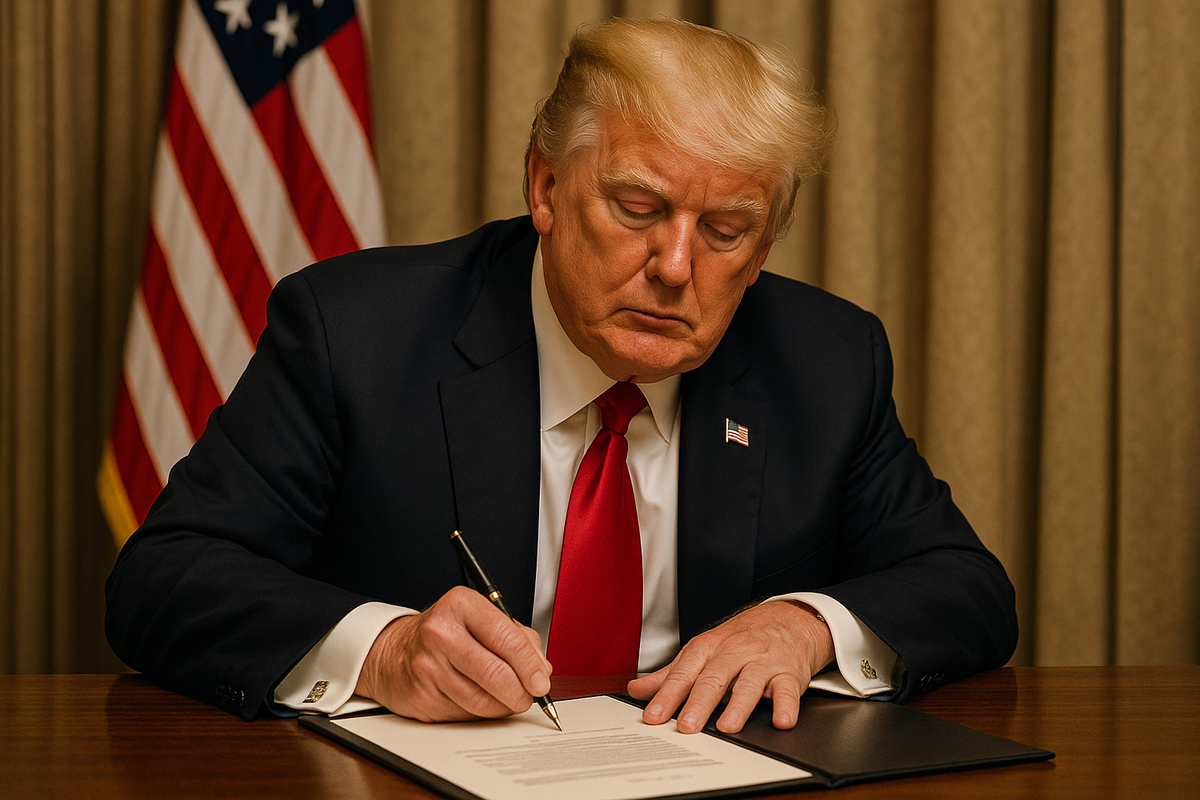US passes first major national crypto legislation - 5 Things You Need To Know Before Investing in Crypto

The Genius Act Just Made Crypto “Legit” — But Don’t Let That Fool You
A crypto trading psychology breakdown of the US’s first major national crypto law
On Thursday, the US officially passed the Genius Act, its first national legislation regulating cryptocurrency, with a focus on stablecoins — the digital assets pegged to “safe” assets like the US dollar. After years of industry lobbying, election funding, and heated debate, regulation has arrived.
And like clockwork, sentiment turned bullish.
Headlines scream “Regulated! Backed! Trump-supported!”
Traders cheer. Bitcoin hits new all-time highs. “Crypto is finally mainstream,” they say.
But before you ride this wave blindly, pause.
Because this bill isn’t just about regulation.
It’s about psychology — and what happens to traders when the illusion of safety enters the market.
Let’s break it down.
1. This Law Is a Signal — Not Just a Policy
The Genius Act creates a legal framework for stablecoins — the cornerstone of how money flows in crypto today.
But here's the deeper psychological insight:
When a government legalizes something, it doesn’t just enable usage — it shifts perception.
Crypto is no longer just a Wild West technology. It’s becoming infrastructure.
This creates what traders crave most: certainty.
And certainty makes us emotionally overconfident.
- “The US government backs this? Must be safe.”
- “Trump is supporting it? Must be the future.”
- “There are rules now? Time to go all in.”
This is where caution dies and herd mentality takes over.
2. Stablecoins Are More Than Just Tools — They’re Emotional Anchors
In trading psychology, every action maps to an emotional state.
Stablecoins = the emotional safety net of the crypto market.
Think about it:
- When you panic sell, you run to USDT or USDC.
- When you're waiting to re-enter, you sit in stables.
- When you’re cautious, you DCA from stables.
- When you're euphoric, you go full send from stables.
The Genius Act makes this “safe zone” feel safer — but that’s the trap.
Because when traders believe they’re safe, they take more risk.
That’s how overconfidence bias creeps in.
And that’s when the market gets dangerous — not because of volatility, but because of your own false sense of control.
3. Illusion of Protection Creates Real Risk
The new law requires stablecoins to be backed 1:1 with dollars or other “low-risk” assets.
Sounds great, right?
But here’s what it doesn’t solve:
- What happens if the issuer collapses?
- Who’s liable in a bankruptcy?
- What protections do retail holders actually have?
This is what psychologists call perceived safety bias.
You assume you’re protected just because something is regulated.
But in reality, you're still exposed to systemic risk. You’re still at the mercy of opaque tech firms acting like banks — but without the same oversight or FDIC guarantees.
In a market crash, those illusions shatter fast.
4. The Trump Narrative Is Fueling Psychological Volatility
Let’s talk politics — not for policy, but for trader emotion.
Trump, once a vocal crypto critic, is now crypto’s unlikely ally. He backs this bill. He’s promoting crypto firms. He might even sign an executive order allowing retirement funds to invest in crypto.
It’s a 180-degree narrative shift.
And traders love narrative.
- Trump = power = bullish
- Trump + crypto = validation
- Trump + legislation = “go signal”
But ask yourself: What happens if he changes his stance again? Or if a scandal disrupts this alignment?
This is classic narrative bias — where we let stories override logic.
Smart traders stay grounded.
Hype traders get wrecked chasing personalities over principles.
5. What This Means for Your Trading Psychology
Let’s zoom out.
The Genius Act does legitimize stablecoins.
It does bring crypto closer to mainstream adoption.
It will attract new users, funds, and attention.
But as a trader, your edge isn’t in knowing what happened.
It’s in knowing how people will react.
Here’s what you should watch for:
| Shift | What it looks like | How to respond |
|---|---|---|
| Overconfidence | Bigger positions, more leverage, less risk management | Recheck your sizing. Use stop-losses. |
| Narrative-chasing | Trading headlines, not fundamentals | Anchor to data, not influencers. |
| False safety | Trusting stables too much | Know your counterparty risks. Research stablecoin reserves. |
| Fear of missing out (FOMO) | Jumping in “because regulation is here” | Ask: Do I understand the project? Not just “is it regulated?” |
Final Takeaway
This bill is not the endgame. It’s just the beginning of a psychological shift.
The Genius Act gives crypto a legal foothold — but it also creates emotional traps for traders who confuse regulation with certainty.
Don’t let that be you.
Understand the narratives. Recognize the biases. Trade with discipline.
Because in crypto, the biggest enemy isn’t volatility.
It’s your own unchecked emotions.
